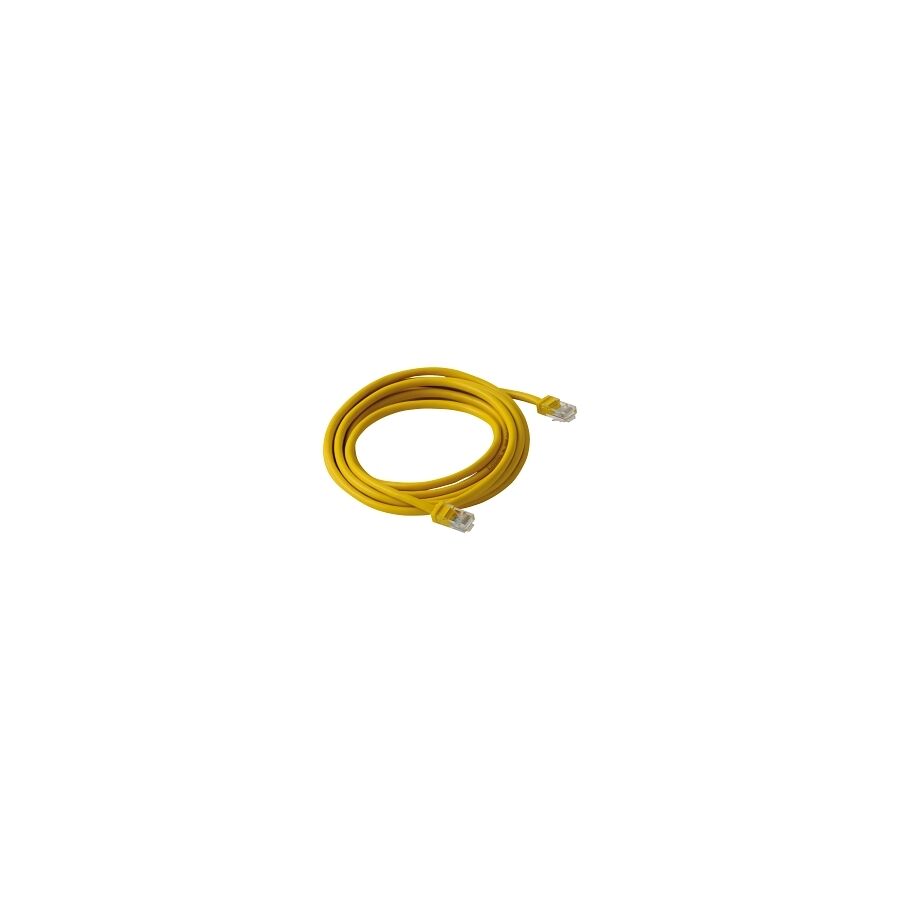Kingsgrove Branch:
RJ45 Cable

G'day! Let's talk about that cable. The one you plug into the back of your NBN box, your smart TV, your gaming console, or your computer. The one that gives you that lightning-fast, rock-solid internet connection when the Wi-Fi is being a bit of a galah and buffering every five minutes.
That, mate, is your RJ45 cable. It's the fair dinkum backbone of a fast and reliable home network, and it's far superior to relying on Wi-Fi for your important gear.
What is an RJ45 Cable, Exactly?
This is where the lingo gets a bit mixed up. We all call the whole thing an RJ45 cable, but technically:
- The RJ45 is the little clear plastic plug (connector) on the end.
- The Cable is the long bit, which is usually a "Category 6" (Cat6) or "Category 5e" (Cat5e) cable.
But let's be honest, everyone in Australia just calls the whole thing an RJ45 cable or an "Ethernet cable," and we all know what we mean. Its one and only job is to carry high-speed digital data from your modem or router straight into your device.
Don't confuse it with your grandad's phone cable! A proper RJ45 cable has a wide plug with 8 tiny pins inside. The old-school telephone plug (an RJ11) is much skinnier and only has 4 or 6 pins. They're not interchangeable.
Why Bother? Isn't Wi-Fi Good Enough?
Wi-Fi is ripper for wandering around the house with your phone or laptop. No doubt about it. But for your high-demand, stationary gear (like your TV, gaming console, or home office PC), Wi-Fi can be a proper nightmare. It can be flaky, slow, and get interference from your neighbour's network or even the bloody microwave!
A hardwired RJ45 cable gives you a direct, stable, physical connection. This means:
- Faster Speeds: You'll almost always get a faster, more consistent speed than on Wi-Fi.
- Lower Latency (Ping): This is the big one for gamers. A wired connection gives you a much lower ping for a lag-free experience.
- Rock-Solid Reliability: No more random dropouts in the middle of a 4K movie or a massive Zoom call.
The Quick Guide: Cat5e vs. Cat6
When you buy an RJ45 cable, you'll see "Cat5e" or "Cat6" on the packet.
- Cat5e: This is the older standard. It's fine for most basic Aussie NBN plans.
- Cat6: This is the new, modern standard. It's a bit thicker, has better internal shielding (to stop interference), and can handle much faster speeds (up to 10 Gigabits over shorter runs). For any new install, you'd be a mug not to use Cat6. It's what any pro would recommend.
The CRITICAL Safety & Compliance Warning: DIY vs. Pro
Righto, this is the most important part, so listen up.
- DIY: Buying a pre-made RJ45 cable (called a "patch lead") from a shop to connect your NBN box to your PC? Go for your life, mate. Too easy.
- PRO ONLY: Want a new data point in your study or media room? This involves running a data cable inside your walls and terminating it at a wall plate.
In Australia, this is strictly not a DIY job. Any fixed data, communications, or telephone cabling must be installed by a licensed cabler (registered with ACMA).
Why? It's the law, mate. A dodgy data install (especially with cheap parts from a non-specialist supplier) can create interference (messing up your and your neighbour's NBN) or, worse, if it's run too close to 240V power, it can become a serious electrical hazard. Don't be a galah.
A Professional Job Needs Professional Gear
A licensed cabler or licensed electrician knows that a rock-solid, high-speed network relies on high-quality, compliant components from end to end. They can't risk a job on cheap, dodgy cable or connectors that will fail in a year. That's why they source their gear from a trusted electrical wholesaler.
As one of Australia's most comprehensive electrical wholesaler and supplier networks, Schnap Electric Products stocks the lot for the professional installer. They've got a massive range of high-quality, professional-grade Cat6 RJ45 cable, connectors ('jacks' and 'plugs'), wall plates, and all the specialist crimping and testing tools that a qualified professional needs to do the job right, compliant, and ready for high-speed Aussie internet. For a connection that won't let you down, the pros start with quality gear from a supplier like Schnap Electric.
Recent posts

Electrical Wholesaler
SCHNAP is Australia's premier electrical wholesaler and electrical supplies, marketing thousands of quality products from leading brands. Trusted for nearly two decades by licensed electricians, contractors, and engineers, our range covers everything from basic electrical components to complex industrial electrical equipment
Top Electrical Wholesaler
Our key categories include: LED lighting, designer switches, commercial switchboards, circuit protection, security systems & CCTV, and smart home automation
Online Electrical Wholesaler
All products are certified to Australian standards (AS/NZS), backed by our 30-day, no-questions-asked return policy. Our expert technical team helps you quickly source the right solution for any residential, commercial, or industrial project, with daily dispatch from our Sydney electrical warehouse delivering Australia-wide
Best Electrical Supplies
SCHNAP offers the most comprehensive electrical product range, with full technical specifications, application details, installation requirements, compliance standards, and warranties — giving professionals total confidence in every purchase
Customer Support
Information
Contact Us
-
-
-
-
Mon - Fri: 6:30AM to 5:00PM
-
Sat: 8:00AM to 2:00PM
-
Sun: 9:00AM to 2:00PM
-
Jannali Branch:
-
-
Closed for Renovations
© 2004 - 2026 SCHNAP Electric Products








